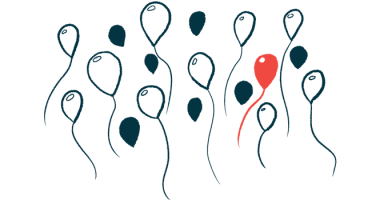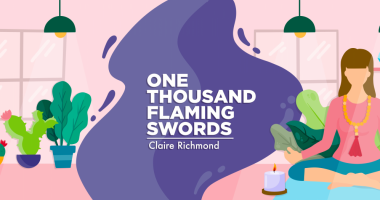Using Mindful Self-compassion to Enjoy My Good Days

Like many with chronic illness, I can function in high pain and with low energy. Living with acute hepatic porphyria (AHP), I’ve grown accustomed to carrying its weight around with me, to showing up in the world as if discomfort and fatigue haven’t colonized in my body.
Every once in a while, the pain between my shoulder blades will subside to a dull ache, and my limbs will loosen, allowing me to walk freely on obeying legs. Occasionally, I will wake in the morning without needing to roll over for more sleep. On the rarest occasions, these days overlap, producing precious minutes, hours, and even days of feeling like I have my old body back.
My good days are few and far between, typically landing in the week following my cycle. They are confusing times. It’s an unaccustomed luxury to rise from bed without an extensive negotiation or move around all day without dragging my body along behind me.
When I wake up and my brain registers this degree of symptom relief, it’s only a matter of time before I’m overcome with shame and judgment. Underneath these anxiety-provoking thoughts is a deep pool of sadness and grief for all I’ve sacrificed due to AHP.
I understand why it feels forbidden for me to have a “good” day, but life is more fun when I’m not dwelling on the guilt of feeling relatively well. To enjoy my good days, I’m retraining my brain using mindful self-compassion methods.
***
Last weekend, I woke up to sun streaming through my shades and songbirds singing. I understood immediately it was one of my most rare, best-feeling days, simply by noticing things outside of my own body. Lifting myself out of bed, I felt tired, but energized. I threw on comfy layers and grabbed my Lenny dog for a sunrise walk.
In my past life, I was part of the 5 a.m. club, up and pounding the pavement with a playlist of indie pop. On my good days, I remember that at the core of my being, I am still a morning person.
We didn’t make it halfway around the block before shadows crept into the edges of my presence, engulfing me in guilt. Out of the darkness, the mean girls in my head piped up with their taunting: How can you claim to be so sick when you’re feeling this well? You gave up your entire career for a lie. When you have AHP, you’re supposed to be doubled over in pain. How can you be walking? They are ruthless.
My chest constricted and my stomach dropped, as if I were riding a roller coaster. My reptilian brain had kicked in. I was on the edge of a full-blown panic attack while standing on a sidewalk lined with melting snow, my poodle sniffing the partially frozen ground unhelpfully.
I took deep belly breaths and concentrated on putting one foot in front of the other. I tried to turn my focus outward, watching Lenny catch a scent or searching for buds emerging in patches of earth. But it was too late. The mean girls had me in their clutches and I’d bought into their lies.
Back home, I folded myself into bed in an attempt at hitting the reset button, with a self-compassion meditation. My mind was fuzzy and my heart racing, but I attempted to soothe myself with breath and gentle touch. It continues to amaze me how quickly I can go from enjoying movement in my body to sliding sideways down a spiral of shame.
From studying mindfulness, I understand that I can retrain my brain’s habitual response to stimuli by creating space. I can’t control the pain or fatigue I will feel on any given day, but how I choose to respond to these symptoms — I can own that.
I started my daily meditation practice last fall, and its effects on my life have been profound. Rather than getting dragged, trampled on, and jostled around by the whims of AHP, regular mindfulness practice has helped me recognize challenges and notice my reactions without judgment. It’s helped me identify the emotions underneath thoughts and question their validity. I have committed to practicing every day, not just the days I feel a certain way.
I don’t have to live every good day in guilt, judgment, or dread. On my good days, life is physically easier, and I will learn to accept them as they come. Through meditation, I can take my power back.
***
Note: Porphyria News is strictly a news and information website about the disease. It does not provide medical advice, diagnosis, or treatment. This content is not intended to be a substitute for professional medical advice, diagnosis, or treatment. Always seek the advice of your physician or other qualified health provider with any questions you may have regarding a medical condition. Never disregard professional medical advice or delay in seeking it because of something you have read on this website. The opinions expressed in this column are not those of Porphyria News or its parent company, BioNews, and are intended to spark discussion about issues pertaining to porphyria.







Comments